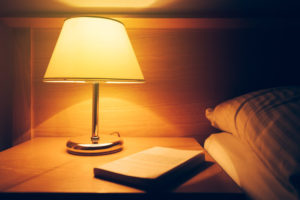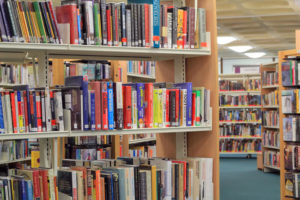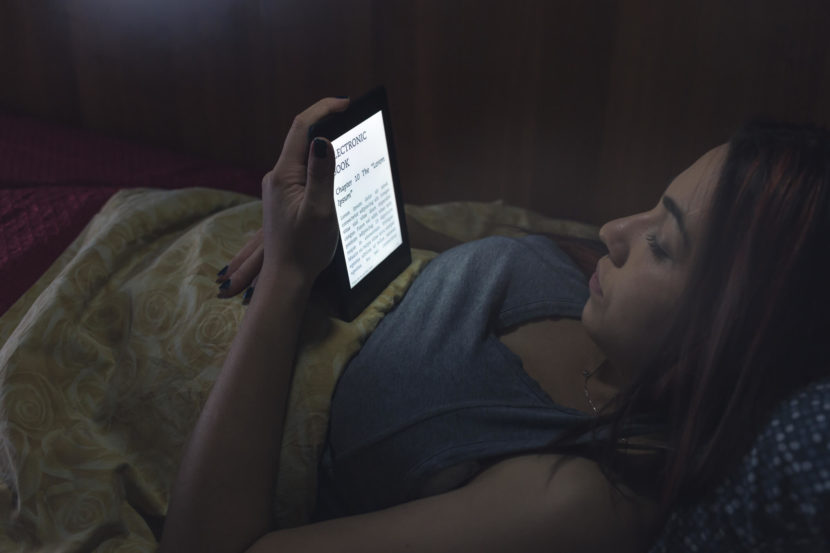As part of a bedtime routine, reading can help you fall asleep as fast as possible every night.
Many people pick up a book and read it before bed. They swear reading helps them fall asleep.
Some people assume if you’re going to read for sleep that you have to read something boring like a phone book or a technical manual. That’s not necessarily so. Read-for-sleepers usually pick stories (fiction or non-fiction) that interest them. They’re engaged until they put the book down. They enjoy what they’re reading. That enjoyment leads to positive thoughts, and that leads to a good night’s sleep.
They’re often not reading for work or school. That kind of reading requires too much attention. There’s more at stake than when you’re reading for fun.
What does successful bedtime reading look like?
Night after night, these people read for 30 minutes to an hour.
Then they put the book down and fall asleep.
It’s that simple.
They usually don’t take sleeping pills. Instead, they rely on natural melatonin production.
Most of these people don’t drink a lot of alcohol, though they might drink occasionally.
These people enjoy the benefit of a full night’s sleep besides many of the other benefits of reading: enriched vocabulary, eclectic learning, and escapism.
One can watch stories on a screen, or one can read them in a book. The story in the book will help you go to sleep in a way that watching it on TV won’t. While it’s more mental work to interpret the words on a page than it is to watch a show on a screen, it’s not physical work. That latter kind of work, like aerobic exercise, cleaning, or something like that can get you wound up. Getting your sympathetic nervous system excited makes it difficult to go to sleep.
If you’ve decided to adopt the reading habit, here’s a few things to maximize its effectiveness in promoting sleep.
(1) How you read is important.
Repeat after me: it’s not what I read as much as it’s how I read.
How you access the writing matters a lot.
Under the right conditions, reading for a bit will allow for a natural segue into sleeping. Reading a printed book on paper doesn’t interfere with sleep, though you need to have a suitable lamp at bedside. The light can be neither too dim nor too bright for the best results.
If you’re going to read on an electronic device, it’s best if you stick to a dedicated electronic device with an electronic ink display. Even if your phone has a nighttime setting, the multipurpose functionality makes it distracting.
Most e-book readers (like the iPad or phone) are backlit. It’s possible to read on these kinds of devices, but the light affects your level of naturally produced melatonin. While it may or may not cause you eyestrain, if you’re reading for sleep, avoid this kind of device. Try an alternatively lit device like a Kindle Paperwhite, a Kobo reader, or a Nook Glowlight instead.
The Paperwhite, the Glowlight, and the nighttime setting on a phone haven’t been tested to see if they affect one’s ability to fall asleep. Studies have been done on unmodified iPads, and those do.
(2) What should you read?
Books are great to read before bed. By “book,” we mean one of those things that are printed, bound, and sold in a bookstore. Yet they’re not necessarily paper. A book could also be something that’s on paper but not sold in a store, like a report. Books can also be electronic.

Along these same lines as to what you should read, asking friends and family for book recommendations (if they’re readers) is a good place to start. A librarian at your local public library is also another great resource.
(3) Reading functions as a productive distraction.
Not all distractions are bad. Some of them make you more productive. Reading is one of them.
(4) Unlike watching videos, reading works the brain without working the body.
When you’re reading, your brain is working double. You’re converting the text into images in your mind. You’re interacting with the text. You’re fixing points into your memory.
Watching videos is a more passive activity and, therefore, doesn’t promote sleep to the same extent.
(5) Lighting to read is muy importante.
If you’re going to read to fall asleep, you’re going to have to take into account how you’re going to light the pages.
There are a lot of ways to do this.
You can have a lamp by your bedside.
You can use a book light.
When you’re reading to fall asleep, it’s better to be lying down rather than sitting upright in a chair. Sitting in a chair helps you focus your attention.
You don’t want to light your whole room. That’s too much light, or it’s too dim, creating eye strain.
The Paperwhite or Glowlight solves the problem of lighting. It comes with its own light source though you have to remember to charge it sometimes, sync it with your computer, or whatever.
Using a lamp with soft white light, however, is the tested, tried and true way of reading for sleep.
(6) Reading helps to build a sleep habit.
When you adopt the habit of reading to fall asleep at the same time every day, you start to build a sleep habit. Your body gets the message that it’s time to start settling down, to start melatonin production.
You’ll adopt a schedule. Maybe Monday through Friday, you go to bed at the same time. On the weekend and on special occasions, you might stay up a few hours extra. Perhaps on those special occasions, you’ll take a nap to give yourself more energy for longer in the night.
Having a consistent sleep schedule doesn’t necessarily make for a boring life. You can get great sleep, benefit from reading, and have a social life all at the same time.
(7) Sleep hygiene matters too.
Reading for sleep can’t be the only thing you do. For best results, pay attention to your sleep hygiene too.
(8) What about audiobooks for sleep?
There’s no reason why listening to audiobooks while you lay in bed shouldn’t help you go to sleep, if that’s the format you prefer. The effectiveness of audiobooks in promoting sleep hasn’t been studied like reading printed material. Though when it comes to being a distraction to stop your mind from churning, recorded books from a service like Audible (paid) or Overdrive (accessible through a library) fit the bill.
One problem I’ve found, however, is that you can doze off in the middle of the story. Then the recording keeps going. When you wake up, you have no idea what’s happened.
When that happens, it can be hard finding your place again when you want to pick up where you left off the next night.
Audiobooks are best left for walks and commuting.
Also on the blog:
We use some affiliate links. If you click on a link and purchase, we may receive a commission. This does not affect our opinions.
